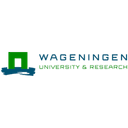This course is part of Tourism in Transition: Exploring a Sustainable Future.
This comprehensive course offers an integral introduction to the complex phenomenon of tourism, focusing on its social and environmental implications rather than the traditional growth-driven approach. You'll examine tourism's historical background through various social science perspectives, with special emphasis on human geography. The course explores tourism's negative impacts on natural resources, cultural heritage, and climate change while discussing sustainable development solutions that balance economic benefits with environmental and social costs. Through weekly reflection exercises, you'll develop critical thinking skills and form your own arguments about tourism development, while also engaging in peer feedback. With tourism contributing $1.4 trillion to the global economy and providing one in ten jobs worldwide, understanding its complexities is valuable for business owners, industry professionals, and travelers alike. The course also addresses how COVID-19 has affected the industry and the choices stakeholders face between returning to business as usual or reinventing more sustainable practices.
Instructors:
English
English
What you'll learn
Understand tourism as a complex social and environmental phenomenon
Explore global tourism development in its historical context
Distinguish between different social science approaches to studying tourism
Analyze the relationships between tourism and its environment
Recognize the economic, socio-cultural, and environmental impacts of tourism
Develop critical thinking skills for sustainable tourism development
Skills you'll gain
This course includes:
PreRecorded video
Graded assignments, exams
Access on Mobile, Tablet, Desktop
Limited Access access
Shareable certificate
Closed caption
Get a Completion Certificate
Share your certificate with prospective employers and your professional network on LinkedIn.
Created by
Provided by

Top companies offer this course to their employees
Top companies provide this course to enhance their employees' skills, ensuring they excel in handling complex projects and drive organizational success.





There are 6 modules in this course
Sustainable Tourism explores the complex phenomenon of tourism from social and environmental perspectives. You'll study tourism's historical development, examine various social science approaches, and analyze its impacts on natural resources, cultural heritage, and climate change. The course emphasizes critical reflection on tourism practices and their sustainability implications. You'll learn about global tourism flows and their relationship to broader economic, social, and environmental systems. Through weekly exercises, you'll develop your ability to form well-reasoned arguments about tourism development. The course also covers how COVID-19 has affected the industry and the choices facing stakeholders between returning to business as usual or developing more sustainable practices. By the end, you'll have a comprehensive understanding of tourism's complexities and the challenges and opportunities for creating more sustainable tourism models.
Introduction & Overview
Module 1
History of global tourism development
Module 2
Scientific approaches and systemic observations
Module 3
Key theories and global flows
Module 4
Environmental impacts of tourism
Module 5
Synthesis and looking forward
Module 6
Fee Structure
Individual course purchase is not available - to enroll in this course with a certificate, you need to purchase the complete Professional Certificate Course. For enrollment and detailed fee structure, visit the following: Tourism in Transition: Exploring a Sustainable Future
Payment options
Financial Aid
Instructors

4 Courses
Tourism and Conservation Conflict Studies Expert
Arjaan Pellis serves as Programme Director of BSc/MSc Landscape Architecture and Spatial Planning and Lecturer in Cultural Geography at Wageningen University & Research, where he specializes in tourism conflicts and conservation practices. After completing his MA at the Erasmus School of Management and both his MSc and PhD at Wageningen University, he has developed significant expertise in analyzing social conflicts within tourism landscapes. His research portfolio spans multiple continents, examining conservation tourism practices across Africa and Europe, with particular focus on human-nature conflicts in places like Kenya, Namibia, Spain, and Portugal. His scholarly work investigates the complex dynamics of tourism conflicts, as evidenced in his publications on rewilding initiatives in Western Iberia, wolf conflicts in Redes Natural Park, and conservation challenges in Kenya's tourism landscapes. Through his teaching and research, he explores how conflicts shape tourism development and conservation practices, contributing to both academic understanding and practical applications in tourism governance. His recent work includes examining surf tourism dynamics in the Mentawai Islands and the persistent nature of conservation conflicts in various global contexts, demonstrating his commitment to understanding the complex relationships between tourism, conservation, and social conflict.

2 Courses
Digital Science Communicator and Environmental Education Specialist
Jonas Skutka is a digital science communication specialist based in Hannover, Germany, focusing on environmental sciences, nature-based solutions, and nature restoration. After completing his Master's Degree in Leisure, Tourism and Environment from Wageningen University & Research, he has built a career bridging environmental science and digital communication. As co-founder of Alerce Environmental (March 2020) and former Executive Coordinator of the Rewilding Academy (2021-2023), he specializes in crafting public outreach strategies and digital content for environmental projects. His work includes significant contributions to educational initiatives, including co-developing a MOOC on Sustainable Tourism at Wageningen University and writing about ecosystem restoration and rewilding for Ekonews. Through his role at Alerce Environmental, he continues to serve as a trusted partner for environmental projects, focusing on knowledge dissemination and exploitation through social media, digital communication, and website platforms. His expertise combines systems thinking with environmental communication, particularly emphasizing the connection between food security, nature restoration, and sustainable tourism. As a core member of the Rewilding Community of Practice on GLFx, he actively contributes to building networks of rewilding enthusiasts and professionals working toward ecosystem restoration.
Testimonials
Testimonials and success stories are a testament to the quality of this program and its impact on your career and learning journey. Be the first to help others make an informed decision by sharing your review of the course.
Frequently asked questions
Below are some of the most commonly asked questions about this course. We aim to provide clear and concise answers to help you better understand the course content, structure, and any other relevant information. If you have any additional questions or if your question is not listed here, please don't hesitate to reach out to our support team for further assistance.



